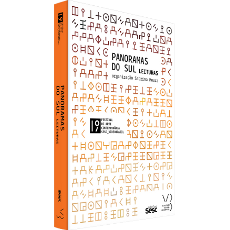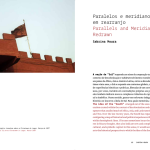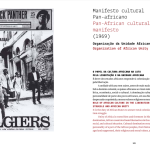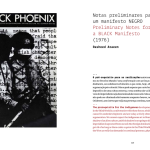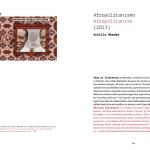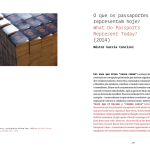SOUTHERN PANORAMAS: PERSPECTIVES FOR OTHER GEOGRAPHIES OF THOUGHT (Bilingual: Portuguese/ English)
Edited by Sabrina Moura
Texts by Milton Santos, José Rabasa, Arjun Appadurai, Jean e John Comaroff, Joaquín Torres García, Artur Barrio, Cildo Meireles, Rasheed Araeen, Southern Conceptualisms Network, Moacir dos Anjos, Anthony Gardner, Charles Green, Geeta Kapur, Néstor García Canclini, Achille Mbembe, Sasha Huber, Ana Longoni
Part of the publications launched by the 19th Festival of Contemporary Art SESC_Videobrasil (São Paulo, Brazil), the book SOUTHERN PANORAMAS | PERSPECTIVES FOR OTHER GEOGRAPHIES OF THOUGHT organized by Sabrina Moura, explores the notion of Global South as an axis of thought and knowledge production.
Conceived in the form of an anthology of texts, the book features contributions from various disciplines and offers a critical perspective on the formation of the concept of South. “Over the last twenty years, the South expands on a global level, configuring a map of historical and political experiences that have refused to keep within hemispheric lines. If its uses sometimes incur in the contradictions inherent in binary thought, they also indicate new and complex flows of economic, cultural and symbolic capital”, says Sabrina, who brought together works of artists Joaquin Torres-Garcia and Cildo Meireles, philosopher and political scientist Achille Mbembe, researcher and writer Ana Longoni, art critic Geeta Kapur, among others.
By revisiting essays, historical documents and manifestos, the publication presents debates previously unpublished in Portuguese — as the work of South African anthropologists Jean and John Comaroff on Southern theories — and translates into English reference texts written by Brazilian authors, such as Spatiotemporal relations in the developing world, written by the geographer Milton Santos in 1976 during his exile in Paris.
From the claims of non-aligned countries that gained strength during the Cold War, to the emergence of post-colonial thought and its critique, the publication offers an important contribution to the debates that question the validity of Eurocentric representations and narratives.
About the editor:
SABRINA MOURA is a researcher and curator based in São Paulo, Brazil. She is a PhD candidate at the University of Campinas (Unicamp) and holds a master’s degree in aesthetics and art history from University Paris VIII and in cultural projects direction from University Paris III Sorbonne Nouvelle. She is the curator of Public Programs of the Contemporary Art Festival SESC_Videobrasil (2013, 2015).
